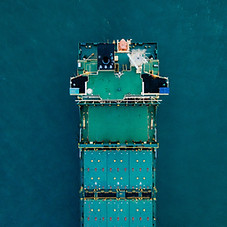
Beyond
Sustainable Design
We donate at least 1% of all revenue
Only 3% of all philanthropic giving goes to the environment. In an effort to protect the environment, we have partnered with 1% for the Planet to donate a portion of all proceeds to support environmental nonprofits.
Supporting Restoration Efforts
We work with the Black Jaguar Foundation to help reforest the corridor between the Amazon and Cerrado in Brazil. See below to see how our contribution to this project progresses.
Our Supply Chain Commitments
We are dedicated to creating impact at all parts of our supply chain.
Below are a few of the goals we are working toward.

Sourcing
Support local communities,
invest in regenerative agriculture

Manufacturing
Move toward clean energy,
create U.S.-based jobs

Transportation
Minimize carbon transport impact by using localized, production facilities

End-Use
Introduce customers to the recycling partners; improve poncho's degradability

Covid-19 Donation Program
During Covid-19, we shifted our resources toward bringing rain ponchos to the medical community. Largely driven by a GoFundMe and a partnership with MedShare, we were able to provide 5000 ponchos to NYC hospitals as well as to frontline workers in Liberia.
Supporting Our Frontline Workers
After working with a doctor at Stony Brook hospital, it was discovered that our ponchos have the unique ability of protecting doctors while intubating patients. Furthermore, doctors across NYC were using ponchos to extend the useful life of their PPE. We quickly took action to donate our available inventory and redirected our production to facilitate the donation.

Ponchos ready for shipment to NYC hospitals

Testimonial from Last Mile Health
“Last Mile Health is grateful for a donation of 1,000 EcoRain® Ponchos from GreenGear® Supply Company, which will be sent to our staff and health workers in Liberia. Our staff and health workers are operating in remote, last mile communities in one of the rainiest countries in the world, so these ponchos will keep them dry while they provide vulnerable communities with life-saving primary healthcare.”
